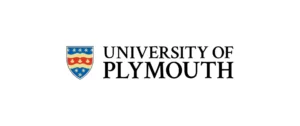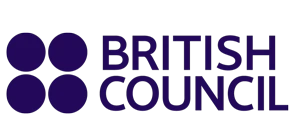The UK is globally recognised for its excellence in medical education. With prestigious universities, cutting-edge research facilities, and access to the NHS for practical training, the UK attracts thousands of aspiring doctors every year.
Medical degrees in the UK are well-regarded worldwide, and graduates often go on to work in top healthcare systems both within and outside the UK. As an international student, studying medicine here opens doors to advanced clinical training and global opportunities.
Medical Degree Structure in the UK

Medical education in the UK is structured differently from that in many other countries. Typically, an undergraduate-entry programme leads directly to a doctor’s qualification. The main degree is called Bachelor of Medicine and Bachelor of Surgery (MBBS or MBChB).
Course Duration
-
Standard entry: 5 years
-
With foundation year (Gateway course): 6 years
-
Graduate entry: 4 years (for students with a prior degree in biomedical or related fields)
Entry Requirements
Academic Qualifications
-
A-levels: Minimum AAA including Chemistry and usually Biology
-
International Baccalaureate (IB): Typically 36–38 points with high scores in science subjects
-
Other international qualifications (such as Iranian pre-university, high school diplomas, etc.) are considered if equivalent to UK standards.
UCAT or BMAT
Most UK medical schools require applicants to sit either the UCAT (University Clinical Aptitude Test) or BMAT (BioMedical Admissions Test). These are aptitude tests assessing reasoning, problem-solving, and critical thinking.
English Language Proficiency
International students must demonstrate proficiency in English, usually through:
-
IELTS Academic: Minimum 7.5 overall (no less than 7.0 in each section)
-
Other accepted tests: TOEFL iBT, Pearson PTE Academic, depending on the university
Application Process
UCAS Application
Applications for undergraduate medicine must be made through the UCAS system. You can apply to up to four medical schools.
Key components:
-
Personal statement
-
Academic references
-
Predicted grades
-
UCAT/BMAT score
Application deadline: 15 October for entry in the following academic year.
Interview Process
If shortlisted, students are invited for interviews, often in the Multiple Mini Interview (MMI) format. Interviews assess:
-
Communication skills
-
Ethical reasoning
-
Motivation to study medicine
-
Teamwork and empathy
Tuition Fees and Living Costs
Tuition Fees
-
For international students: typically between £38,000 – £52,000 per year, depending on the university
Living Costs
-
Outside London: Around £10,000–£12,000 per year
-
In London: Around £13,000–£15,000 per year
Top UK Universities for Medicine
Some of the best-ranked UK medical schools include:
-
University of Oxford
-
University of Cambridge
-
Imperial College London
-
University College London (UCL)
-
King’s College London
-
University of Edinburgh
-
University of Manchester
-
University of Glasgow
-
University of Birmingham
-
Queen Mary University of London
Each has slightly different requirements and strengths, so it’s vital to research them thoroughly before applying.
Foundation and Gateway Programmes
Some universities offer gateway programmes or foundation years aimed at international students who:
-
Have strong potential but don’t meet direct entry requirements
-
Come from underrepresented educational backgrounds
These programmes add an extra year to the degree but provide structured academic support.
Graduate Entry Medicine
Some universities offer a four-year accelerated medical programme for students who already have a degree (often in Biomedical Sciences). These programmes are highly competitive and often require GAMSAT or UKCAT.
Clinical Training and NHS Placements
During their studies, medical students complete clinical placements in NHS hospitals and GP surgeries, gaining hands-on experience in real healthcare environments under professional supervision. This practical component is a key strength of UK medical education.
After Graduation: Foundation Programme and Licensing
Foundation Programme (F1 and F2)
After graduation, all UK medical students enter a 2-year Foundation Programme, during which they are paid as junior doctors working under supervision.
Licensing
Upon successful completion, graduates are fully registered with the General Medical Council (GMC) and can apply for specialist training or start working in hospitals.
Visa Requirements for International Students
You will need a Student visa to study medicine in the UK. Key requirements include:
-
Confirmation of Acceptance for Studies (CAS)
-
Proof of English language ability
-
Proof of financial support for tuition and living expenses
Tips for a Successful Application
-
Start preparing early (1–2 years in advance)
-
Gain experience in healthcare or shadowing doctors
-
Prepare thoroughly for UCAT/BMAT
-
Write a compelling personal statement
-
Practice for interviews
Can International Students Work After Graduation?
Yes, international medical graduates can apply for a Graduate visa (2 years) or a Skilled Worker visa to continue working in the UK. The medical profession is on the UK Shortage Occupation List, which facilitates job opportunities for international doctors.
Conclusion: A Rewarding but Demanding Journey
Studying medicine in the UK is both prestigious and intensive. With the right preparation, academic record, and passion for healthcare, international students can thrive in the UK’s world-class medical education system.
If you’re planning to apply or unsure where to begin, our team at Universitio offers free personalised consultation to help you every step of the way.
👉 Book your free consultation









